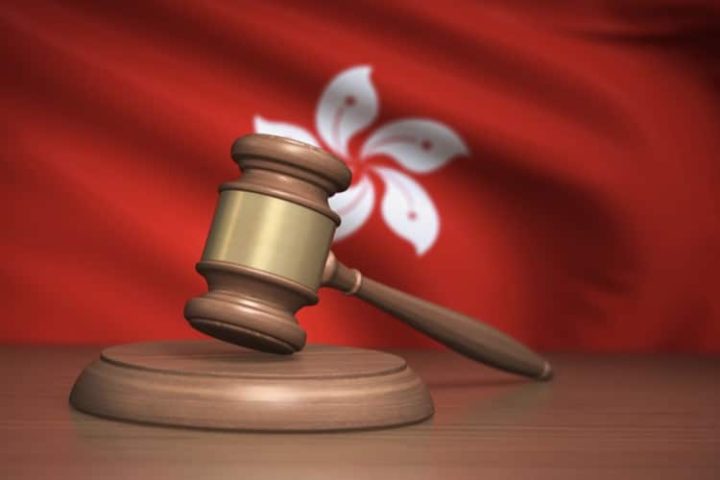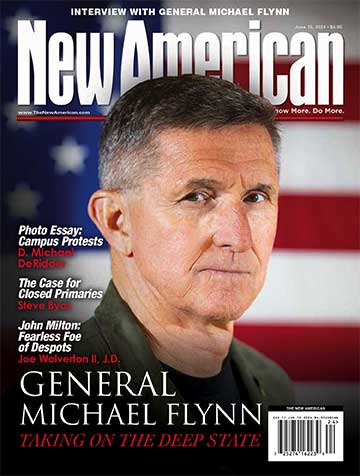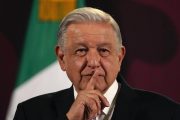
China’s top lawmaking body granted Hong Kong leader John Lee the authority to ban foreign lawyers from national security trials, taking away the decision from the city’s courts.
In response, critics said such a move produced a “dual state” in Hong Kong’s justice system and transformed its national security committee, dominated by top Hong Kong and Beijing officials, into an “omnipotent authority” that could override any national security rulings.
In 2020, Beijing imposed the sweeping national security law in Hong Kong after massive and violent pro-democracy protests plagued the city in 2019.
Since then, the law has been invoked to repress dissent and turn Hong Kong’s common law traditions that had distinguished it from China’s opaque, party-controlled courts.
Even so, Hong Kong courts had been able to permit lawyers from other common law jurisdictions to work in the city, especially for cases where particular expertise was necessary.
However, Beijing’s National People’s Congress Standing Committee (NPCSC) ruled in December 2022 that Hong Kong’s chief executive should now determine if foreign lawyers working on cases entailing the new law would undermine national security.
Hence, Hong Kong’s courts must now procure a certificate before thinking of admitting a foreign lawyer.
If the courts do not comply, the city’s powerful national security committee chaired by Lee and Beijing’s liaison chief in Hong Kong would decide instead. The committee’s rulings cannot be challenged legally.
Lee, a former police chief, lauded such a move and posited that foreign lawyers could threaten national security because they hailed from “hostile” countries.
Previously, Lee had also insinuated that they could be under coercion or manipulation.
Such a ruling was provoked when imprisoned pro-democracy media tycoon Jimmy Lai, the founder of the now-defunct newspaper Apple Daily, hired senior British lawyer Tim Owen to defend him at his national security trial.
Hong Kong’s government objected to such a move although it had been backed by the city’s judges, including the top court.
The government then had recourse to the NPCSC, which has the ultimate say in constitutional issues.
“This has created a dual state, an exceptional criminal justice system in which court rulings could be overturned if they do not have the executive power’s endorsement,” Eric Lai, a fellow of Georgetown University’s Centre for Asian Law, told AFP.
Lai cautioned that the ruling could impact cases not prosecuted under the national security law.
Moreover, Lai and other legal experts had warned against such a ruling as it would undermine the independence and reliability of Hong Kong’s judicial system.
Lawyers in Hong Kong who take on human rights cases, who have lambasted China’s national security law, or who have cautioned about threats to the rule of law have not been spared the wrath of the pro-Beijing administration in the city as well.
They have had to endure various acts of intimidation such as anonymous threats sent by text message and email, GPS tracking devices ,ambushes by reporters working for state-controlled media., and accusations of disloyalty in the press, among many other forms of harassment.
Legal scholars, diplomats, and activists claim that though some of Hong Kong’s leading rights lawyers have been held in custody in the past two-and-a-half years, many others have become targets of attempts to rid the city of dissent. Such efforts form part of a broader suppression campaign by the ruling Chinese Communist Party (CCP) on lawyers across China.
Michael Vidler, one of the city’s top human rights lawyers, is among those targeted by the pro-Beijing regime in Hong Kong. Vidler left Hong Kong in April, a few months after a judge singled out his law firm six times in a ruling that arrested four pro-democracy protesters on charges of unlawful assembly and possession of illegal weapons.
Vidler regarded the judgment as “a call to action” on the city’s national security police “to investigate me,” he told Reuters in an interview and requested that his whereabouts be kept anonymous.
What sparked off his rushed departure, Vidler asserted, was the posting of articles in the state-sanctioned media in Hong Kong about him. One alleged that he was the representative of an “anti-China” group. Within days, the British national departed his home of 30 years.
Vidler attempted to make a low-profile exit. He sent a suitcase to a friend before flying out. On the day of departure, he met the friend with the suitcase and went to the airport. Upon arrival, he found reporters from state-backed media outlets waiting for him.
They “descended on me as a mob at the check-in counter, taking photos of my travel documents,” Vidler said. His spontaneous flight plans were known only to his wife, the airline and immigration authorities, he said, which “clearly shows that this information was provided by official sources” to the media.
“This was in my view state-sponsored intimidation and harassment,” said Vidler, whose wife and children later left Hong Kong. A government spokesman termed Vidler’s description of events “baseless and erroneous.”
Former Bar Association Paul Harris also left Hong Kong for England after being summoned for questioning by national security police. Harris was also harassed by reporters from state-sanctioned media outlets at the airport as he left.
Less prominent lawyers are also departing Hong Kong, clearly intimidated and threatened by such state-sponsored measures.
Fearing prosecution under the national security law, or worried about threats to Hong Kong’s freedoms, many lawyers and legal academics have left the city, mainly to Britain, Australia, and North America.
One Hong Kong solicitor who has relocated to England told Reuters that she knew of at least 80 Hong Kong lawyers who had emigrated to Britain since the security law was imposed in June 2020.
Another lawyer, now living in Australia, estimated that various Hong Kong lawyers had moved there.
Some are prepared for the prospect that they may never return to the city. Kevin Yam, a commercial solicitor and now outspoken critic of Beijing’s crackdown in Hong Kong, said he took his mother’s ashes with him when he left for Melbourne.
“I wanted to be fully prepared, given the way Hong Kong is going,” Yam said. “If I couldn’t ever get back to Hong Kong, I didn’t want to leave her there.”
Since Chinese leader Xi Jinping came to power around 10 years ago, the CCP has increased its persecution of human rights lawyers and legal activists on the mainland. Eminent rights lawyers there,such as Ding Jiaxi and Xu Zhiyong, are among hundreds who have been detained, harassed, and jailed.
This crackdown spread to Hong Kong following the 2019 protests. Martin Lee, Margaret Ng, and Chow Hang-tung are among the veteran human rights lawyers who have been arrested.
Yet, city leaders deny that they are purging the profession.
“There is no truth in the alleged harassment or intimidation of ‘human rights’ lawyers” by the government, the Hong Kong Chief Executive’s Office said in response to questions from Reuters. “We dispute and strongly object to your highly suggestive questions and biased, baseless and false accusations against the Hong Kong National Security Law (NSL) and law enforcement actions taken by law enforcement agencies.”
Alluding to Vidler’s case, the Chief Executive’s Office said, the judge had not hinted “that a lawyer could be guilty of a criminal offense by providing legal services.”
Any steps by law enforcement were “strictly in accordance with the law” and had no links with a person’s “political stance, background or occupation,” the office declared.
When questioned about Vidler’s alarm over the ruling that quoted his law firm, the Judiciary said it “does not comment on court judgments” and that judges do not “make public comments on their judgments.”
Any indication of “inappropriate conduct” by a judge, it said, could only be made “when supported by solid grounds and evidence. Surmise and innuendo fall far short of what is required.”
In Beijing, the State Council Information Office and Hong Kong and Macau Affairs Office failed to respond to questions from Reuters.
Hong Kong’s lawyers have been a challenge for Beijing since the former colony’s handover from the British in 1997. As a profession, lawyers have marched on the streets silently six times since the handover, in protest at what they perceived as destruction to the city’s legal system and freedoms.
Lawyers were also key figures in the mass public demonstrations against proposed national security laws in 2003, the pro-democracy Occupy Central protest movement in 2014 that crippled parts of the city, and the 2019 protests following the government’s effort to unveil laws permitting the extradition of criminal suspects for trial on the mainland.



